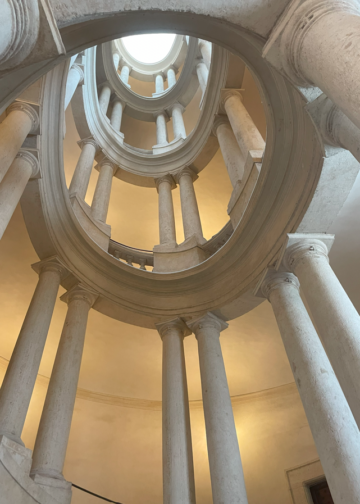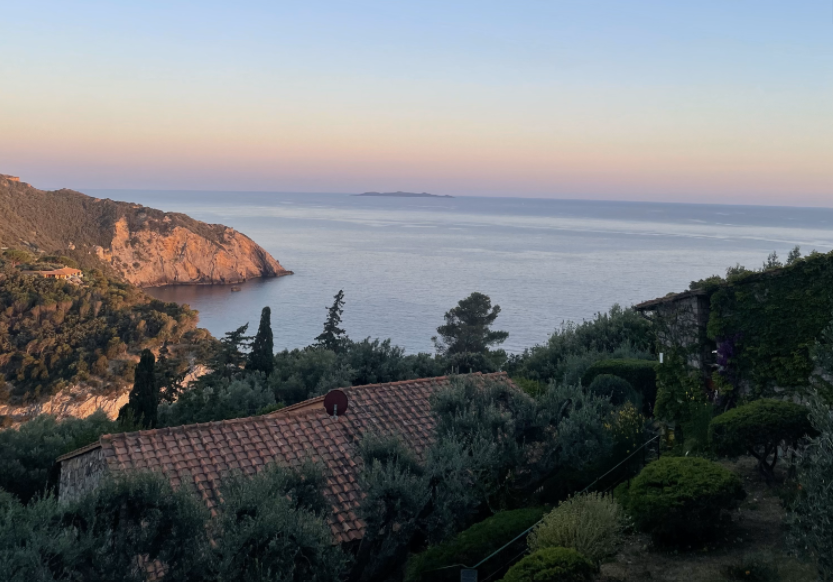“Weddings are fake, funerals are real,” some say. Real or fake, funerals can be beautiful, and I went to one in Rome. It was a reunion with the friend who passed away and the city I know so well but had not visited in years. I found the city to be the same, eternal, as the cliché goes. As always, it was hot too soon in the season. Like New York, Rome exists in a cauldron, several degrees hotter than any place around it and as always, the city balanced ancient grandeur with popular spirit.
I was reminded of how unpretentious Romans are when chatting with an older man, casual in a short-sleeved shirt, who lingered at the end of the funeral. He told me about his years-long research on economic inequality in Italy, focused on the needs of rural communities, which he carried out himself driving around the country.

Only when I asked about his previous “government role” as an economist did he modestly reveal he had been a cabinet minister in the Ciampi and Monti administrations. He soberly offered, based on his findings, that there are “a lot of parallels between Italy and the U.S.” and we were “on track to re-elect Trump.”
You meet a minister, and then you’re at Rome’s sumptuous Palazzo Barberini, eating in the converted greenhouse and ogling the surrounding landscaped terraces. A friend of a friend mentions location scouting in the Balkans with a big-name American director, and that seems fitting here. Later we’re at Gracchi, a neighborhood gelateria where the sight of people standing around with their scooter helmets means they have come across town for this ice cream. As is the Roman and Italian way, everyone eats outside, deep in chatter or one raucous conversation or another. Communion may be dead in the church, I thought, but it’s alive here.
Just as the funeral had created a pretext for traveling to Rome, it followed that the weekend should be spent at the beach. We drove to the Argentario peninsula, marveling at uninterrupted pine woods bordered by the sea. As in other rarefied vacation spots, the only intervention has been from wealthy conservationists, specifically the heiress Susanna Agnelli who had made it her mission to protect the Argentario during a spell in local government here. I remember her photo beside the column: of a woman simply dressed and unadorned, whose uniformly white hair was pulled back in a bun.

The infinity pool at the genteel Torre di Cala Piccola Boutique Hotel is a guest favorite. It descends on a slope from a fifteenth-century Saracen tower, and below that, a lawn where tuxedoed waiters serve drinks with small, precise movements, their bodies angled like compasses against the sun. It is where we meet Lisa and George, a couple from the UK who traveled here after seeing the pool on Instagram. They like the quiet – there is a distinct hush about the property, a reverent awe, maybe, for the sweeping views of the Tyrrhenian Sea and island of Giglio beyond – but they wished the hotel’s critically-acclaimed restaurant had “more pizza and pasta” and “less seafood.” I make a passing reference to climate change and this triggers an enumeration of local grievances. Wind turbines, the assault on their woodstoves, the corrupt town council’s corrupt organic gardens, and is it man-made climate change anyway? I wondered how one could complain in this sublime place and what the metrics of economic disaffection would reveal about Lisa and George.

Like the rest of Argentario, the town of Orbetello is sheltered from the crowds. It’s treated as utilitarian; the single train station is here, the main post office too. Dmitri, a Moldovan staff at our hotel who has lived in the area for almost two decades sniffed when we asked if it was nice. But this fails to acknowledge the simple beauty of the old town, its charming pedestrian streets. The absence of ornamental splendor is all the better for appreciating the rhythm of the place. Evening conversations echo as in dreams. Locals accompanied by their many dogs take their evening walks and greet one another.
We stop and eat dinner at a restaurant straightforwardly called “L’Osteria,” affording great people-and-animal watching outside. There was no pizza on the menu, though there was pappa al pomodoro, the famous Tuscan tomato stew. “It’s food for peasants,” our waiter conceded, “though we think we do it well.” He was true to his word. Food for peasants and food for everyday kings.










